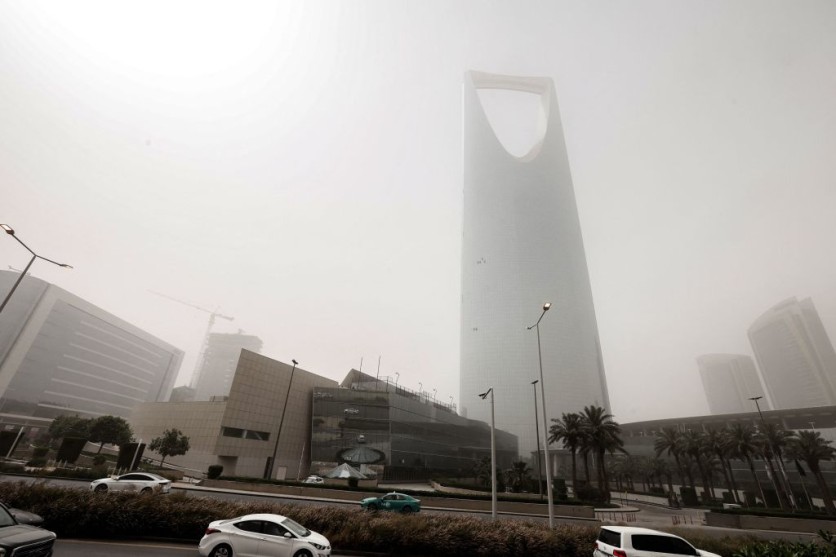A recent study unveils innovative strategies to combat extreme heat, particularly focusing on Riyadh.

This picture taken on May 17, 2022 shows a view of the Kingdom Centre skyscraper and al-Mamlaka (Kingdom) shopping mall in the centre of Saudi Arabia's capital Riyadh during a heavy dust storm.
Beating the Heat in Riyadh
By integrating advanced cooling technologies and reflective materials, researchers from UNSW Sydney propose a solution that could potentially lower temperatures in one of the world's hottest cities by 4.5°C.
The comprehensive strategy emphasizes the significant impact of combining cutting-edge cooling technologies to not only reduce urban temperatures but also minimize energy consumption.
Interesting Engineering reported that the implications extend beyond temperature control, encompassing improvements in environmental sustainability and overall quality of life.
Enduring scorching temperatures exceeding 50°C in the summer, Riyadh, the capital of Saudi Arabia, faces formidable challenges exacerbated by the impacts of climate change and swift urban expansion.
Professor Mattheos Santamouris, the senior author of the study and holder of the Anita Lawrence Chair in High-Performance Architecture, highlights the city's difficulties, pointing out the scarcity of green spaces and vast artificial surfaces that not only trap heat but also intensify the urban heat island effect.
The temperature in Riyadh faces additional escalation due to heat emanating from vehicle emissions and industrial activities, thereby posing threats to public health and heightening energy requirements.
Using Innovative Technologies
Professor Santamouris emphasizes the importance of implementing a well-balanced combination of advanced heat mitigation technologies, offering benefits like enhanced thermal comfort, reduced health risks associated with extreme heat, lowered pollution levels, and increased human productivity.
As stated in its press release, this study carried out in partnership with the Royal Commission of Riyadh, utilized extensive cooling climatic and energy simulations for the Al Masiaf precinct.
The simulations encompassed an analysis of the energy performance of 3323 urban buildings, providing valuable insights into the complex interplay of factors influencing the city's thermal dynamics.
Assessing eight distinct heat mitigation scenarios, the research aimed to pinpoint the most effective strategies for curbing temperature and cooling demands in the city.
The suggested cooling approach advocates for the deployment of highly reflective 'super cool' materials on rooftops and a substantial augmentation of irrigated trees to bolster transpiration cooling.
Additionally, they simulated the energy impact of retrofitting measures for all 3323 buildings in Riyadh.
By integrating optimal cooling technologies with energy retrofitting options, there is potential to reduce the city's cooling demand by up to 35%. This represents a notable reduction in energy requirements and the associated costs.
Envisioning collaboration with the Royal Commission of Riyadh, Glam Adelaide reported that the researchers propose the implementation of a tailored heat mitigation plan, which, if successful, would be the most extensive initiative of its kind globally.
Professor Santamouris anticipates that these advanced heat mitigation technologies will not only bring enduring health benefits but also contribute to sustainability and economic well-being for the city.
The study involved researchers from diverse institutions, including the University of Sydney, Lawrence Berkeley National Laboratory, the University of Calcutta, and the University of Athens.
Related Article : Extreme Heat Threatens to Spike Heart-Related Deaths in the US

![Apple Watch Series 10 [GPS 42mm]](https://d.techtimes.com/en/full/453899/apple-watch-series-10-gps-42mm.jpg?w=184&h=103&f=9fb3c2ea2db928c663d1d2eadbcb3e52)



